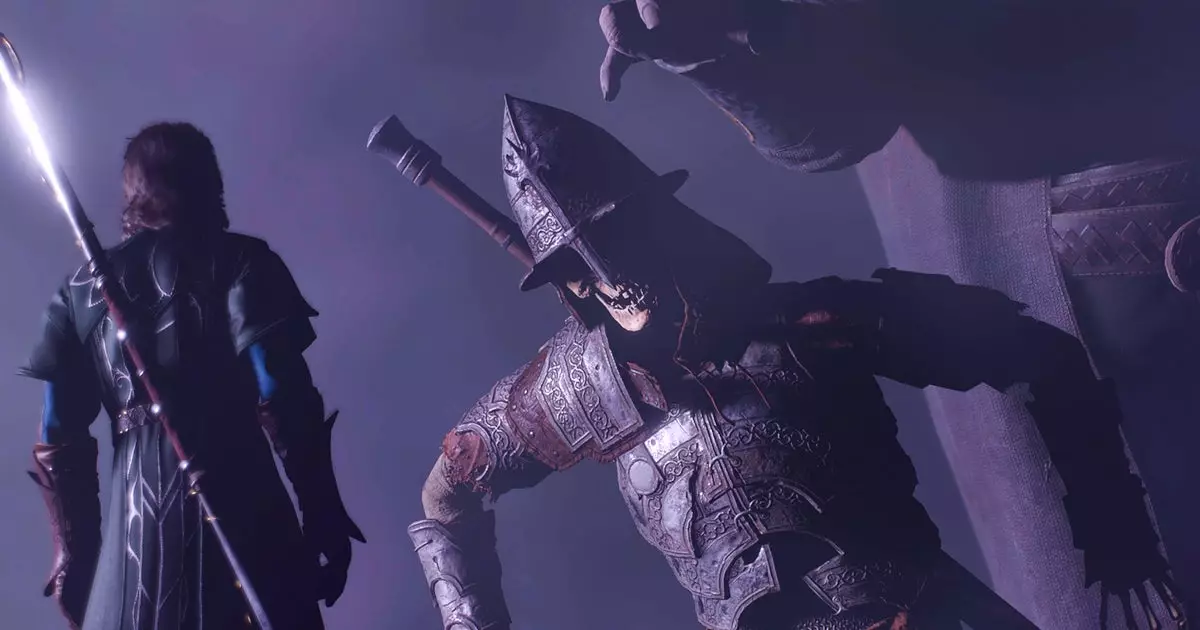The recent surfacing of footage and concept art from a now-reportedly cancelled Dungeons and Dragons RPG by Hidden Path Entertainment has ignited discussions among fans of the tabletop franchise. As one of the companies responsible for the development of Counter-Strike: Global Offensive, Hidden Path’s ambition to delve into the fantasy RPG realm is an intriguing prospect. The revelations surrounding Project Dante, the game’s codename, reflect both the potential within the D&D universe and the complexities currently at play within the franchise’s brand management under Wizards of the Coast.
While the existence of this game had previously been shrouded in uncertainty—initial reports indicated its cancellation alongside a slew of other projects at Wizards of the Coast—Hidden Path’s efforts to clarify their position highlight a company wrestling with high expectations and artistic aspirations. In 2023, Creative Director Michael Austin’s announcement to “pause development” on Project Dante due to business restructuring and workforce reduction was a telling moment, underscoring the difficulties that even established developers face in an evolving gaming landscape. As 44 developers lost their jobs, it raises questions about the sustainability of ambitious projects in a competitive industry.
A Glimpse into the Gameplay Experience
The leaked footage, though rough around the edges, offers tantalizing glimpses into what Project Dante might have become. The setting appears to blend elements from various successful fantasy RPGs; however, it does not quite break new ground. A trio of adventurers exploring quaint locales, battling hostile bandits, and solving puzzles in a vividly designed world is a narrative framework with which many gamers are familiar. Yet, it’s this familiarity that could have appealed to fans. It plays into the nostalgia for adventure and the thrill of camaraderie that has consistently drawn players to Dungeons and Dragons.
The adventure sequences depicted in the gameplay are reminiscent of titles like Dragon Age, featuring real-time combat and puzzle-solving mechanics. The interactive third-person perspective puts players in the shoes of their characters, allowing for a deeper emotional connection with both allies and the environment. Specific moments, such as a character named Kavar uttering the awkward phrase, “The thing is starting to do a thing with the stuff,” might seem trivial on the surface, but they offer a window into potential humor and character depth just waiting to be explored.
The Creative Artistry Behind Project Dante
The concept art showcases creativity that deserves praise, revealing not only a glimpse into the artistic direction of the game but also the vibrant imagination behind the D&D franchise. One standout image features a Tressym, a creature that any D&D enthusiast will recognize, adding layers of authenticity to the game world. Such intricate details create an engagement with lore that can be both entertaining and educational for new players looking to dive into the D&D universe. Art like this positions Project Dante well within a broader artistic movement in gaming, where visuals are not merely for aesthetics but serve to enhance storytelling and player immersion.
The mysterious world inhabited by the adventurers, coupled with scenes that evoke camaraderie—such as characters enjoying drinks in a tavern—beautifully captures the essence of classic D&D sessions. Role-playing games thrive on social interaction and storytelling, and these moments, even in their tentative state, skillfully encapsulate that spirit. Had the game reached completion, these themes could have resonated deeply across the D&D community.
The Uncertainty of the Future
Yet, the cancellation of Project Dante raises significant concerns about the path forward for RPGs based on established franchises. With the industry entrenched in fierce competition and an audience clamoring for innovation even while yearning for the familiar, balancing ambition with practicality remains a challenge for developers. The creative potential seen in Project Dante hints at what could have been a remarkable addition to the D&D legacy, yet the harsh realities of game development often lead to cut projects that, while promising, fail to secure the necessary support or funding.
Hidden Path’s endeavor serves as a stark reminder of the fragility of creativity within commercial contexts. For fans of Dungeons and Dragons, the news serves not just as a point of frustration but also a moment of reflection on the complexities of game development in the contemporary landscape—where the desire for new adventures continues to collide with the substantial obstacles of production. What remains now is a lingering hope for the eventual rise of new projects that can recapture the magic of tabletop role-playing, enriching the narrative tapestry of D&D for generations to come.

